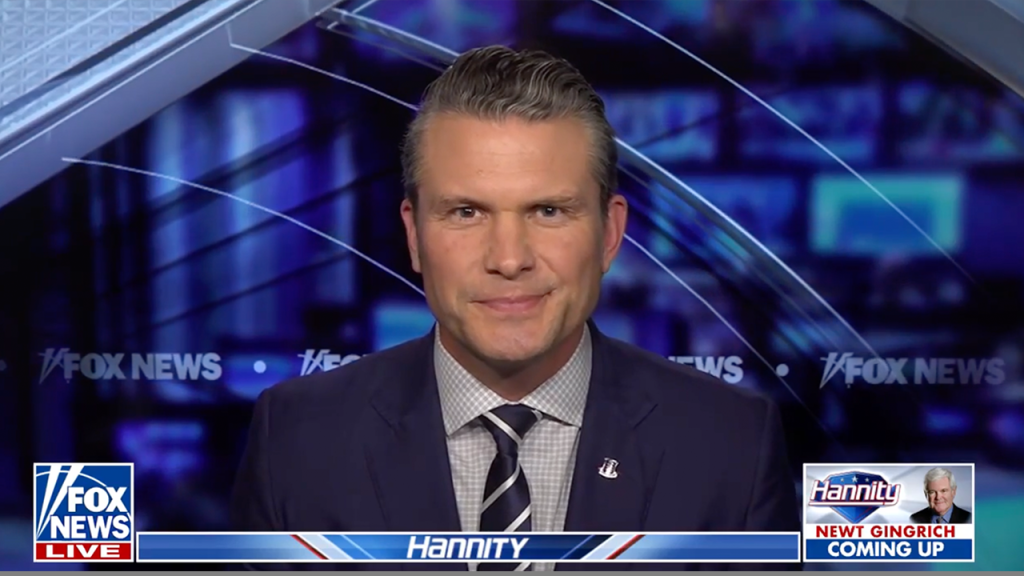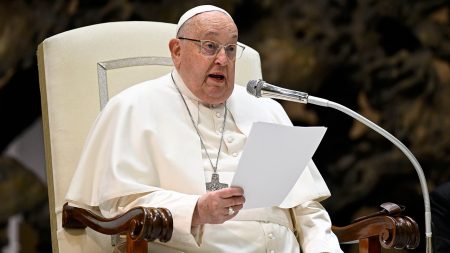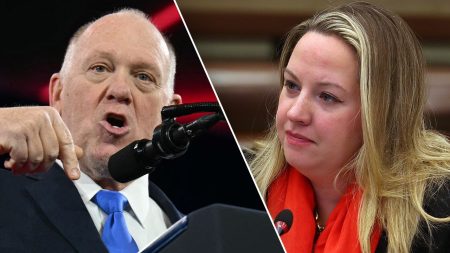Pete Hegseth, President-elect Donald Trump’s nominee for Secretary of Defense, embarked on a charm offensive on Capitol Hill, engaging in a series of meetings with Republican senators to secure their support for his confirmation. Hegseth’s nomination has been embroiled in controversy, with allegations of sexual misconduct, excessive drinking, and mismanagement of a veterans’ nonprofit organization plaguing his candidacy. Hegseth vehemently denies these accusations and has pledged to abstain from alcohol entirely if confirmed. His meetings with senators represent a crucial step in the advise and consent process, allowing him to address concerns and demonstrate his qualifications for the position.
One of Hegseth’s key meetings was with Senator Joni Ernst of Iowa, a member of the Senate Armed Services Committee. While Ernst initially withheld her endorsement, she signaled increasing support for Hegseth following their second meeting. Ernst emphasized the importance of a fair hearing based on factual evidence and highlighted Hegseth’s commitment to a full Pentagon audit and the selection of qualified senior officials who prioritize the well-being of service members. Her evolving stance suggests that Hegseth’s efforts to address her concerns have been, at least partially, successful.
Hegseth’s outreach extended beyond Senator Ernst, including meetings with Senators Lisa Murkowski and Susan Collins, both considered moderate Republicans. Hegseth characterized these meetings as productive, emphasizing the significance of the advise and consent process and his gratitude for President Trump’s confidence in him. He portrayed himself as an “open book,” willing to answer any questions and earn the senators’ votes through transparency and engagement. This proactive approach aims to counter the negative narrative surrounding his nomination and demonstrate his commitment to the confirmation process.
Despite the controversies, Hegseth enjoys robust support from President Trump and his allies. Trump reiterated his strong endorsement of Hegseth, praising his energy, leadership qualities, and charisma. This unwavering support serves as a powerful counterbalance to the negative press and reinforces Hegseth’s determination to secure the nomination. The president’s allies have also mobilized to defend Hegseth, warning other Republicans of political consequences if they oppose Trump’s nominees. This underscores the political stakes involved in the confirmation process and the pressure on senators to align with the president’s agenda.
Hegseth’s efforts to secure Senate confirmation unfolded against a backdrop of escalating political tensions. Reports surfaced suggesting Trump might be losing faith in his nominee, fueled by Democratic criticism and reservations expressed by some Republicans, including Senator Lindsey Graham. These reports, however, were quickly countered by Trump’s emphatic reaffirmation of his support for Hegseth on social media, describing him as a “winner” and a future “fantastic” Secretary of Defense. Vice President-elect JD Vance echoed this sentiment, emphasizing the Trump team’s unwavering commitment to Hegseth’s nomination. This display of unity aims to quell any doubts about Hegseth’s viability and project an image of strength and determination.
Hegseth’s strategy involved not only engaging with senators but also directly addressing the allegations against him. He characterized the media coverage as a “show trial” orchestrated by the left and vowed to fight back against these accusations. He emphasized his willingness to cooperate with the Senate and answer all questions honestly, seeking to portray himself as a victim of unfair attacks rather than a candidate with legitimate concerns surrounding his past conduct. This assertive approach seeks to shift the narrative and regain control of the confirmation process.










